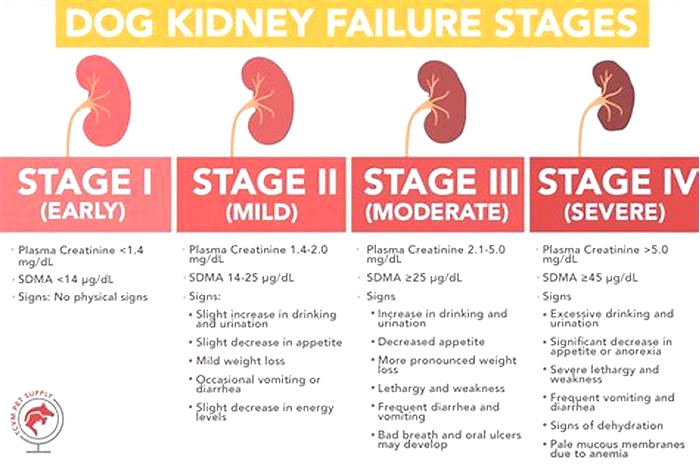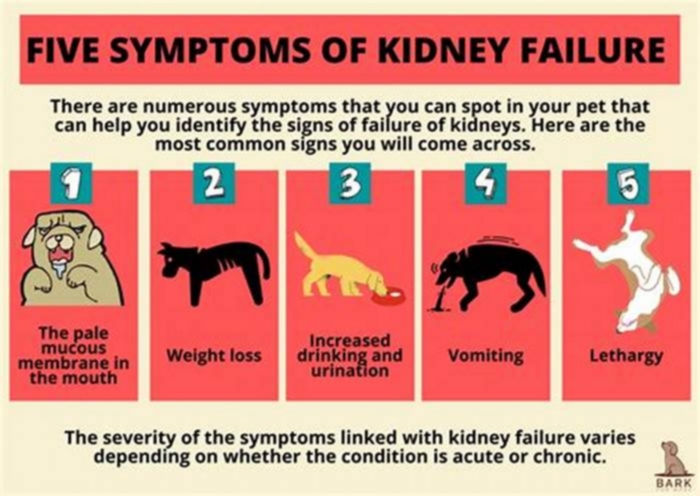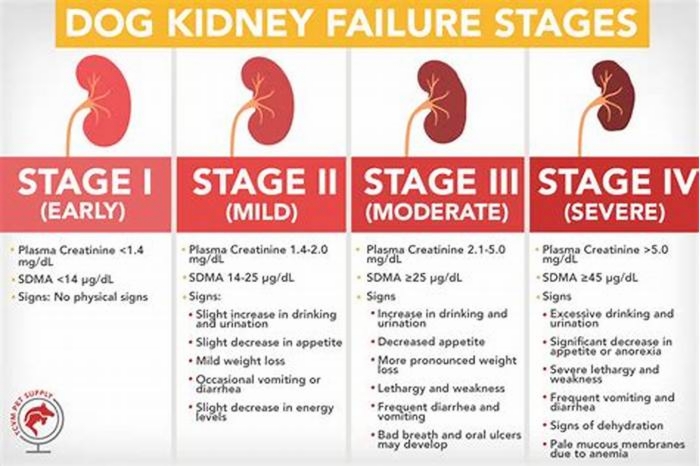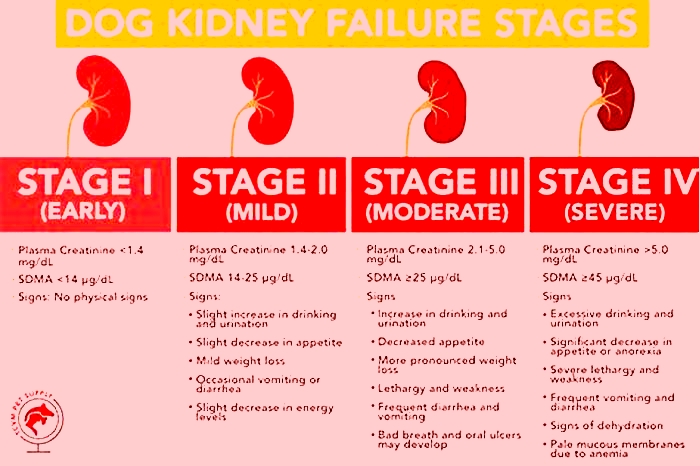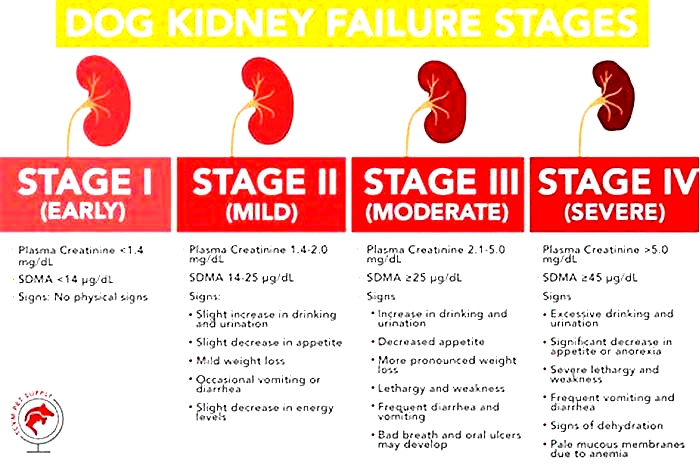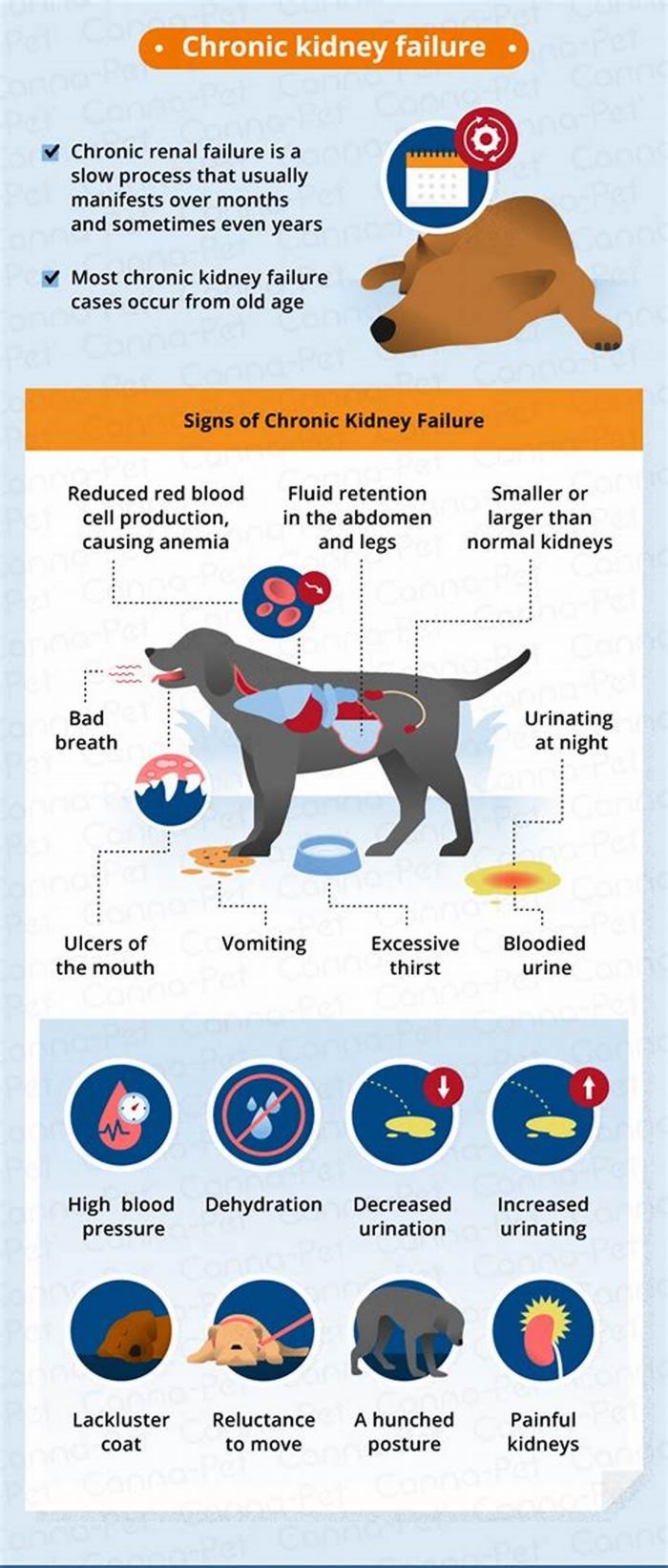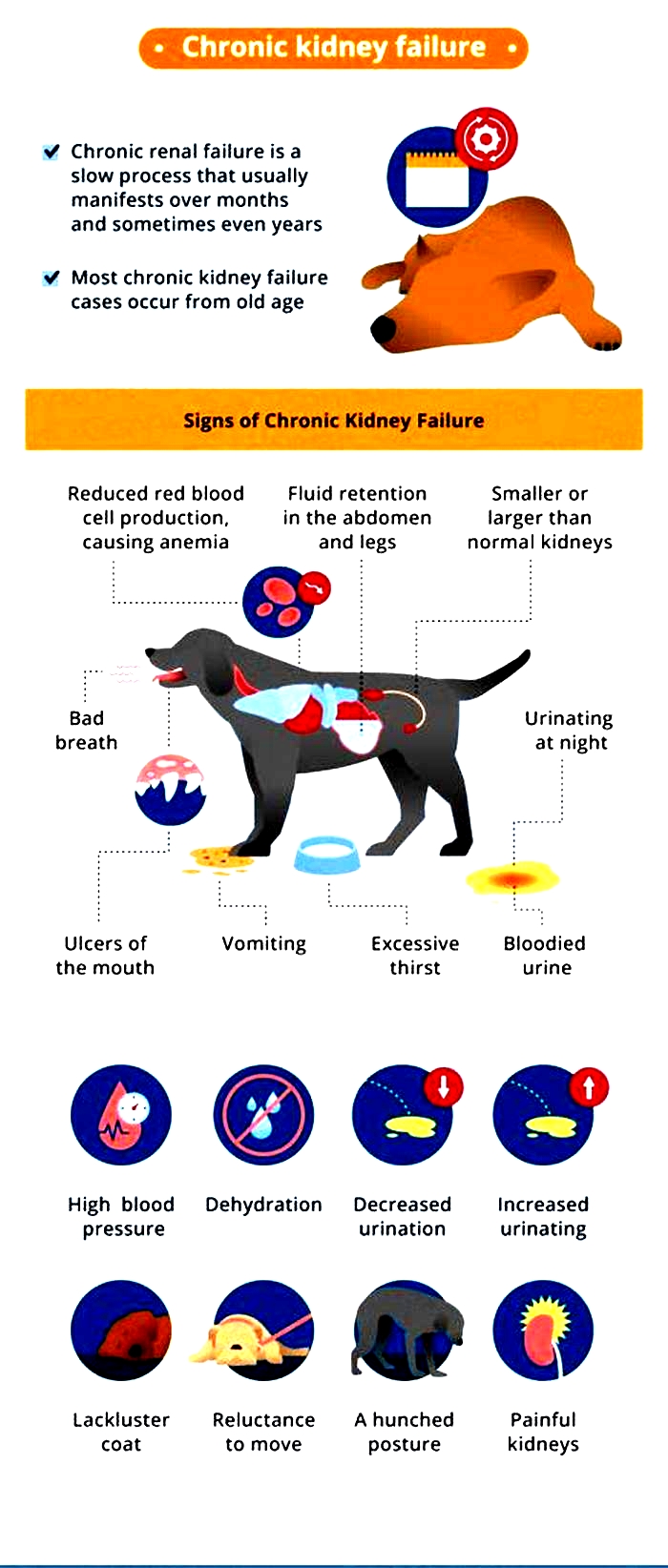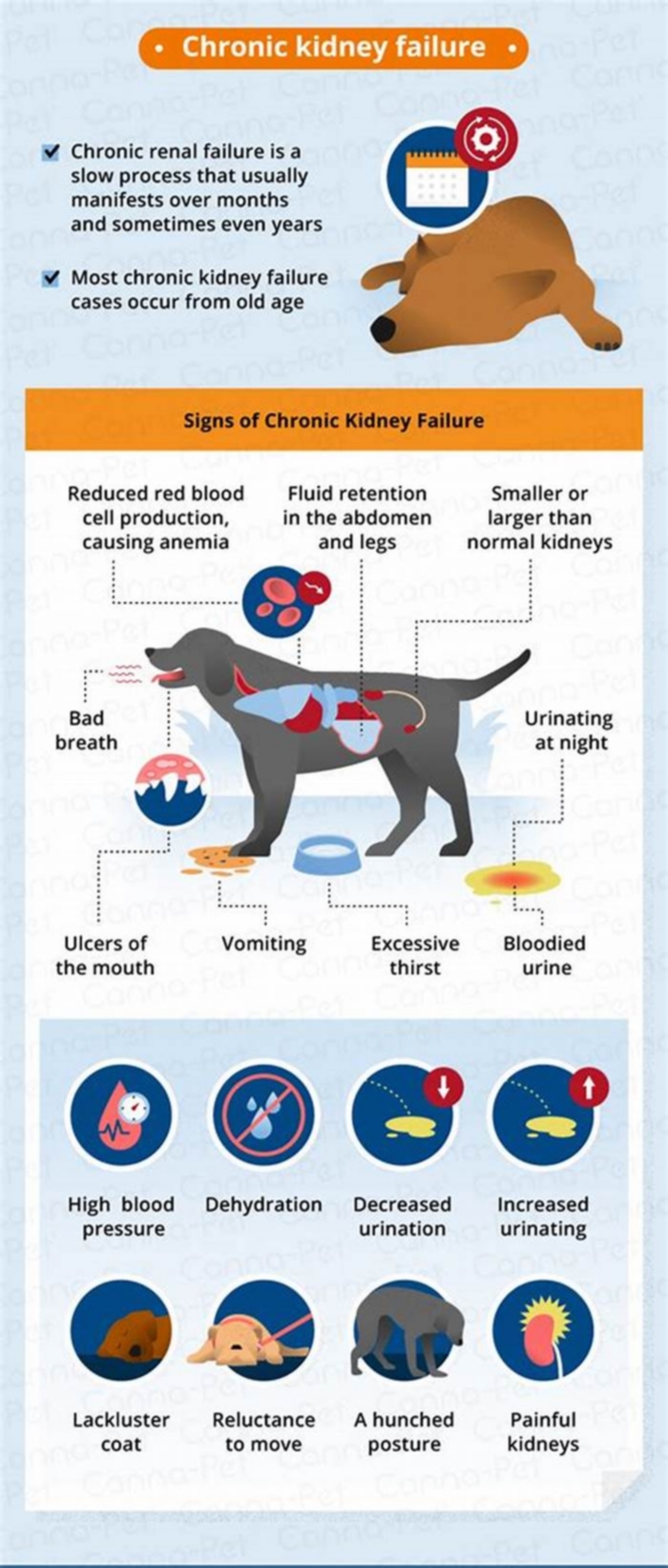kidney disease in dogs bad breath
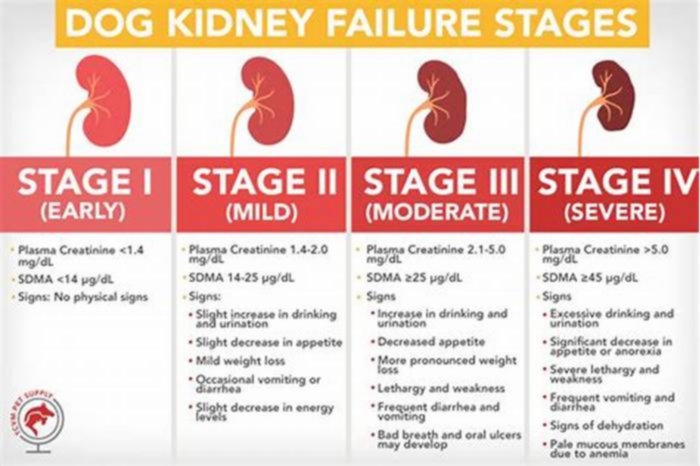
Halitosis or bad breath in dogs is a common symptom of kidney disease. High levels of urea tend to cause this bad breath to smell fishy. If your dogs breath strongly smells like ammonia, they may be suffering from kidney disease.
As kidney disease progresses into further stages in dogs, they may exhale bad breath. Toxins that build up in their gut are a common reason for this. It is a fairly common symptom and can be treated by following effective measures.
One spectacular way to fix this is for your dog to have consistent easy bowel movements so adding in some fiber, some pumpkins, etc. may help soothe things in their digestive system. The big solution to this is using probiotics. And by that, we mean using Good & Effective probiotics. Probiotics are good bacteria that help to get rid of kidney and uremic toxins. The more you give your dog, the better it is.
If youre looking for probiotics, the 2 billion to 5 billion range will not be of any help as its just not strong enough. You must get the ones with at least 25 billion or more. If youre looking to buy one, check this out!
We formulated a probiotic supplement called Kidney Restore for Cats & Dogs, which has 50 billion probiotics. Those probiotics are made up of varieties of strains that target the kidney toxins. It has other things in it that are great for the kidneys and improves kidney function for your pets.
Whatever you choose, this probiotic or one at the store, it is important to make sure that you read the nutrition facts and confirm that the probiotics are at least 25 billion or more. The ones that stores usually carry are between 2 to 5 billion and theyre just not strong enough to do the job.
If youre looking to fix that bad breath for your pet, using probiotics is a great way to solve that! Kidney Restore for Cats & Dogs is a probiotic supplement from Healthy Kidney Inc. which has had tremendous success in fixing bad breath in pets and improving many dogs kidneys.
Can Coffee Benefit Kidney Health?
Learn How Alpha Blockers Damage Kidneys
For more informational content & useful videos be sure to check out our YouTube Channel
How to Get Rid of Stinky Dog Breath
Paid Advertisement
Few smells are as unpleasant as a dog with bad breath. Your dog might think that you appreciate their kisses, but if they have bad breath, then getting up close and personal is the last thing that you want to do.
Bad dog breath isnt just gross it could also be a sign of a health problem. Before you pop your dog a doggy breath mint, take a moment to do a little research into the possible causes of bad breath and what you can do to treat and prevent it.
Causes of Bad Dog Breath
Dog owners tend to dismiss bad dog breath as just dog breath, but there is usually a very good reason behind the odor. This can range from needing to brush your dogs teeth more often, to more potentially dangerous effects. Check with your vet to get to the bottom of your dogs bad breath.
Oral Hygiene and Periodontal Disease
The most common causes of bad breath in dogs are bad oral hygiene and periodontal disease. Just like in humans, the build-up of plaque and tartar can lead to the development of the bacteria that cause bad breath. If your dog is not a chewer and you do not regularly brush their teeth or have their teeth cleaned, then the likely cause of their bad breath is plaque build-up. Over time, poor oral hygiene can lead to periodontal disease. Too much plaque and tartar build-up can push the gums away from the teeth, exposing new areas for bacteria to develop. This not only inflames the dogs gums, but it can lead to cavities, infection, tissue destruction, tooth loss, and even pus formation. Needless to say, it also leads to very, very bad breath.
Unpleasant Dietary Habits
Dogs can be gross. Sometimes their habits translate directly into bad breath. If your dog regularly gets into the garbage, or has access to decomposing animal remains, then their bad breath could be the result of unsupervised snacking. Dogs also universally seem to love cat poop, and a household with cats can offer too much temptation for your dog to resist. Not only is this smelly, it is also unhygienic. As if cat poop wasnt bad enough, some dogs eat their own poop or the poop of other dogs, a condition called coprophagia that causes bad breath in dogs and occasionally mild nausea in their horrified owners.
Diabetes
If your dogs bad breath has a sweet or fruity smell to it, you need to make an appointment with your veterinarian. Sweet, fruity breath is a symptom of diabetes, a serious but treatable condition. Talk with your veterinarian about the other symptoms of diabetes to look out for, like more frequent drinking and urination, and set up an appointment to get your dog examined.
Kidney Disease
A dog that eats poop might have breath that smells like poop, but if your dogs breath smells like urine, it is most likely not because they has been drinking pee. A urine odor to your dogs breath is a warning sign of kidney disease, and warrants a visit to your veterinarian. Kidney disease is serious and could be a symptom of a larger medical problem.
Liver Disease
If your dogs breath is truly foul and theyre also vomiting, exhibiting a lack of appetite, and has a yellow tinge to their gums, they may have a liver problem. Like kidney disease, liver problems can be a sign of a serious condition, and it is vital that you get your dog into the veterinarian or emergency clinic as soon as possible.
Treating Bad Dog Breath
As important as it is to understand the underlying issues behind malodorous doggie breath, what we really want to know is how to get rid of it. Curing bad dog breath depends on the cause, but luckily there are quite a few treatment options out there.
If plaque, tartar, and periodontal disease are behind your dogs bad breath, then the best thing you can do is to schedule an appointment with your veterinarian to see if your dog is a candidate for a dental cleaning. Your veterinarian will run bloodwork to make sure your dog can handle anesthesia, and this appointment is also a great time to rule out any other potential causes for your dogs bad breath. During the cleaning, your veterinarian may have to remove loose or damaged teeth, depending on the scope of the periodontal disease.
When it comes to unsupervised snacking, securing the trash and limiting your dogs access to unpleasant outdoor finds, like roadkill, will resolve this issue. Placing the litter box outside of their reach is a simple solution that eliminates cat feces consumption, unless the cats are also pooping outside, and cleaning up directly after your dog can help prevent coprophagia.
Diabetes, kidney, and liver disease are all conditions that require treatment from a veterinarian. Once the underlying issue is resolved, your dogs bad breath should go away, too.
Preventing Bad Breath in Dogs
The simplest way to prevent bad dog breath is to brush your dogs teeth on a regular basis. Teeth brushing reduces plaque and promotes better oral hygiene, much as it does in humans, and with a little training, most dogs learn to enjoy having their teeth brushed. Dog toothpaste is formulated for dogs. Never brush your dogs teeth with toothpaste meant for people, as it may contain ingredients that are toxic to dogs, like xylitol.
Providing your dog with plenty of chew toys and dental treats helps them take care of their teeth naturally. Chewing prevents plaque and tartar build-up and relieves boredom, keeping your dog healthy and happy. Just make sure you pickdog chew toys appropriate for your dogs size and age.
Small breeds may require more dental care than large breeds as they are more prone to periodontal disease, according to the AKC Health Foundation. Smaller breeds tend to have teeth that are closer together, which promotes plaque and tartar build-up, so make sure you provide them with plenty of chew toys from a young age and brush their teeth regularly.
Feeding your dog a quality, balanced diet, providing them with plenty of exercise and taking them to the veterinarian for regular check-ups can help prevent systemic disorders like diabetes. Plus, keeping your dog healthy helps avoid a host of other health problems, and can help your veterinarian pick up on the underlying cause of your dogs bad breath before it gets too bad.
There are other oral health products aside from canine toothpaste on the market, including special oral health diets, dental chews, and water additives. Talk to your veterinarian about the products they recommend.
Say goodbye to your dogs bad breath today by making an appointment with your veterinarian to discuss the possible causes for your dogs bad breath and your treatment options. As with most health problems, prevention is the best cure, so pick up a tube of dog toothpaste and start brushing your dogs teeth at least once a day to prevent oral decay.
PetLab Co. helps give our best friends the richest, healthiest lives possible through the power of scientific nutrition. To date, theyve impacted the lives of over three million dogs and counting. Their products are vet-reviewed, NASC-approved, and manufactured in the USA in GMP-compliant facilities with global and domestic ingredients. To learn more visit www.thepetlabco.com.
Kidney Disease in Dogs: Signs, Symptoms, and Treatment
Your dogs kidneys are essential organs that filter waste products from the bloodstream. When the kidneys are weakened, either by acute or chronic kidney disease, your dogs health could suffer. Because kidney disease progresses over time, its important to learn the common symptoms so tha you can recognize them. If you catch kidney disease in dogs early on, treatment can slow down the progression and allow your dog to live longer.
What Is Kidney Disease in Dogs?
Kidney disease in dogs is sometimes called renal or kidney insufficiency because it occurs when a dogs kidneys stop doing their job as efficiently as they should. The main job of the kidneys is to help clear and excrete waste products from the blood and convert them to urine, says Dr. Jerry Klein, Chief Veterinary Officer for the AKC. If the kidneys are not working properly, these waste products can build up in the blood, causing detrimental effects.
Dogs can get either acute kidney disease, which develops suddenly, or chronic kidney disease (CKD), which develops slowly and worsens over an extended period. Both involve loss of kidney function, but they result from different circumstances. Acute kidney disease is a sudden attack or injury to the kidney, whereas chronic kidney disease is a slow, degenerative loss of kidney function, Dr. Klein explains.
What Causes Kidney Disease in Dogs?
Dr. Klein warns that kidney disease could be caused by a lot of things, including infection (such as with the bacteria that causes leptospirosis), trauma, genetics, drugs, toxins, cancer, mechanical obstructions (like kidney stones), and degenerative diseases (where the job and form of the affected body part get worse over time). Anything that decreases blood flow to the kidneys, such as dehydration or heatstroke, can cause the kidneys to fail.
Acute kidney disease in dogs can be caused by exposure to hazardous materials, including toxic plants such as lilies, certain drugs, harmful foods such as grapes or raisins, or antifreeze. Puppy-proofing your home and yard can keep your dog away from potentially harmful items or foods that could be toxic.
Chronic kidney disease in dogs is also associated with growing older. Because kidney tissue cant regenerate once its damaged, the kidneys can wear out over time. As small-breed dogs often live longer than large-breed dogs, they tend to show early signs of kidney disease at an older age10 years old or more, compared to as young as 7 for the large breeds.
What Are the Symptoms of Kidney Disease in Dogs?
The earliest signs of kidney disease in dogs are increased urination and therefore increased thirst. Other symptoms dont usually become apparent until about two-thirds of the kidney tissue is destroyed. So, in the case of CKD, the damage may have begun months or even years before the owner notices. Because of this, its common for the signs of kidney disease in dogs to seem like they came out of the blue when in fact, the kidneys have been struggling for a long time.
Other signs of chronic kidney disease in dogs to watch for include:
Dr. Klein says there are some rarer symptoms of kidney disease in dogs to be aware of, as well. On occasion, there can be abdominal painurinary obstructions or stonesand in certain instances, one can see ulcers in the oral or gastric cavity. In extreme cases, little or no urine is produced at all.
What Are the Stages of Chronic Kidney Disease in Dogs?
Kidney disease in dogs is measured in stages. Many veterinarians use the IRIS scale, which has four stages. Blood work measurements like creatinine and SDMA (biomarkers for kidney function) allow your vet to assign your dog to a particular stage which will determine the exact treatment.
Dr. Klein explains, The stages determine how well the kidneys can filter waste and extra fluid from the blood. As the stages go up, the kidney function worsens. In the early stages of CKD, the kidneys are still able to filter out waste from the blood. In the latter stages, the kidneys must work harder to filter the blood and in late stages may stop working altogether.
How Is Kidney Disease in Dogs Treated?
Dialysis (a medical procedure that removes waste products and extra fluid from the blood) is far more common in humans than in dogs, although peritoneal (kidney) dialysis can be performed in some cases. On rare occasions, surgical kidney transplant is possible in dogs.
But Dr. Klein specifies that depending on the type and stage of kidney disease, the main treatments for CKD are diet changes and administration of fluids, either directly into the veins (intravenous) or under the skin (subcutaneous). The balancing and correction of electrolytes are extremely important in the management of kidney patients, he explains.
Proper nutrition is needed, and there are many available diets formulated for cats and dogs with kidney issues, some by prescription only. Your veterinarian can help guide you to the most appropriate diet for your pet.
Because kidney disease, particularly in the late stages, can cause a dog to lose their appetite, it can be difficult to encourage your dog to eat enough. Dr. Klein advises, There are medications used as appetite stimulators available, such as the prescription drug mirtazapine. Capromorelin has recently been FDA-approved for dogs to address appetite in chronic kidney disease.
When Do You Need to Call Your Vet?
The prognosis and expected life span for a dog with kidney disease depend on the type of disease, the speed of progression, and underlying conditions present in the dog. However, the more serious the disease, the poorer the outcome. Thats why its so crucial to catch the illness early on.
According to Dr. Klein, In chronic kidney disease, there are methods, such as diets and medications, that can be used to lessen the burden of work the kidneys need to do and may help slow down the progression from one stage to the next. In acute kidney disease, there is less time and fewer choices available to prevent further damage to the kidneys and to try to jump-start the kidneys to get them to function normally.
Regular veterinary exams, including bloodwork, are an excellent way to spot kidney problems before the outward symptoms become apparent. And if you notice any of the above signs, dont hesitate to get your dog to the vet for further testing. It can make a huge difference in preserving kidney function and your dogs well-being for as long as possible.

